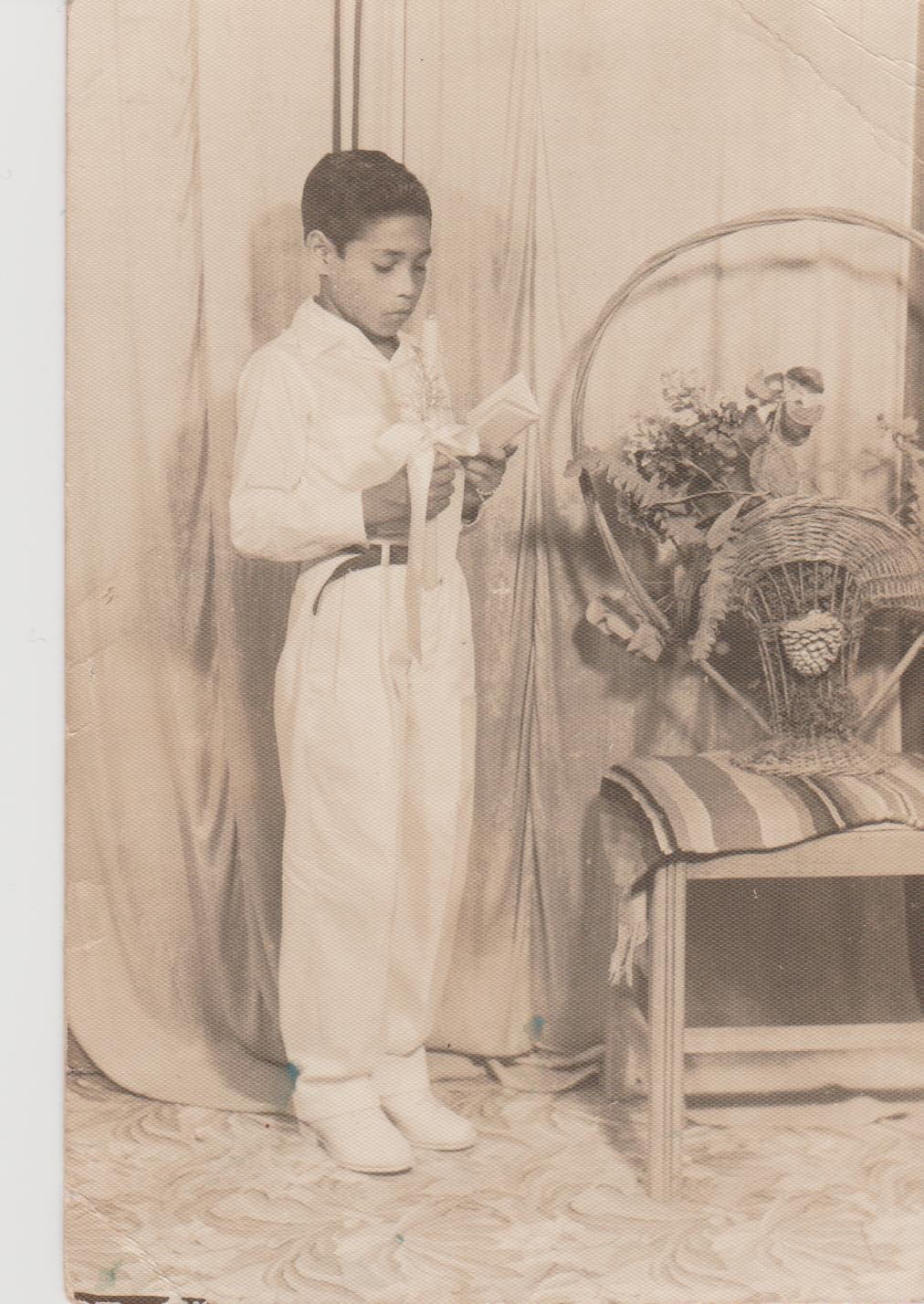TRANSCRIPTION
What was life like in Mexico?
Maybe it was for us "the Ramirez" because we were in a position that allowed us to go to the movies very frequently. All we had to do was ask my father for money. My father would hand it to us and many times when we request it, he would tell us to get from the drawls were he keep it. But being very careful to only get what was needed.
What do remember about your childhood?
It was very happy childhood. We used to spend a lot of our time in different areas of the river that divided the city. We used to collect big rocks and create ponds to swim. We used to go to the "Caminos rurales" (Rurse roads) with our slingshots to pursuit rabbits, birds, lizards, and snakes. When I had my first church ceremony I had to wear white clothing.
What was your home life like with your siblings?
It was a very normal life. I being the oldest had to take care of the younger ones at school, at play time, in the wilderness. Of course we had our differentness but it all amount to verbal discussions.

What were your chores and responsibilities?
Chores? It all depended on my mother's assignments at the moment. She might send any of us to the meat market or to the grocery store or to buy handmade corn tortillas.
What kind of food did your mom make for you and your family?
One of the dishes that I most remember is the rabbit meat that my mom used to prepare for us, after my father had gone hunting once about one kilometer from home.
How were boys and girls treated in school? How were they treated in similar ways? Or were they treated differently?
The school that all of us went was about 100 square meters. Half of the building was used to educate boys and the other half was used for the girls. No fence, no divisions, all the class rooms were lined up together but there were respect for the boundaries. No boys will cross the invisible line that separated the two schools, "Juan B.Tiserina" For the boys and "la Corregidora" for the girls.
Were you tracked in school based on your sex?
Never
What type of job did men in your family have?
My father had his own barber shop.one of his younger brothers was a tailor and one of the youngest ones were a brick layer.
What are some of the biggest changes that you have witnessed?
I have experienced big changes. From having to cut wood to light up a fire to Turing a knob to a stove, from having to submerge the "manguillo" into a glass container with ink to be able to write what the teacher was teaching us to moving the mouse of the computer and many much things.
How did you manage to live in a country that had a different culture background?
If you are referring to me living in the USA, it was kind of a struggling because it is very different. The perception that I have is that people are very harsh, cold, and indifferent until you gain their friendship.
What were your fears as a new immigrant?
My biggest fear was not to be able to communicate with people due to my limited English.

When did you get married to grandma Cira?
On November 5, 1996. My parents stood next to us as we read our vows.
What prompted you to move to San Antonio? also, when you first moved to San Antonio what was the first store you visited?
After the marriage, my wife's family moved to San Antonio, Texas and when my wife got pregnant, her family insisted on her coming to live in San Antonio to have the baby. Handy Andy was the store we first visited. we would also buy food from their as well.
What was your first car and did you learn how to drive?
My oldest son asked me, "how come we are the only ones that don't have a car?" I told a friend that had a job at Kelly air force base to look for a car for me. He found the car and I paid cash for it. I had a barracuda as my first car. It took me two weeks to get my license.

What was your favorite memory you have with your kids?
When we took a picture together with their dog. They would always play in the back yard. I still remember them laughing.
What was the job that you stuck with till this day?
The job that I work with till this day is the machine shop. I worked to produce metal products to supply military components from the department of defense.
If you could change something about your life what would you change?
Probably the only thing that I would change is that I would have pressured a college career.
Is there anything else you would like to add to this interview?
only if you need more

